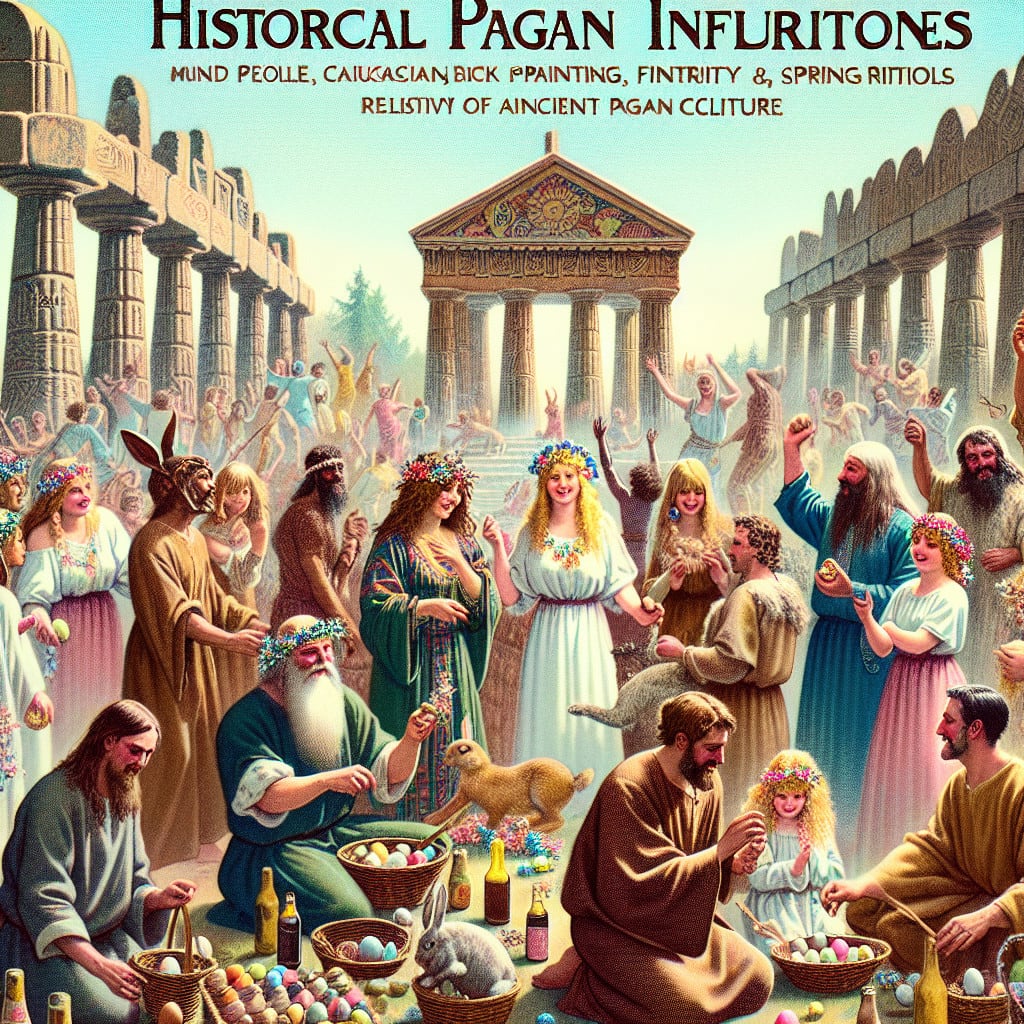Easter is one of the most widely celebrated holidays in the modern calendar and is a time of joy and celebration for many. However, its origins and history are much older than most of us realize. In this article, we explore the pagan history of Easter and its connection to the ancient celebrations of spring and rebirth. We will look at the symbolism, customs and traditions that have been kept alive for centuries and how they have been adapted over time. We will also discuss the spiritual aspects of Easter and how it has become a time of reflection and spiritual renewal.
Easter is one of the most important religious holidays in the Christian calendar, but its roots actually stretch back to pagan traditions. For centuries, people have celebrated Easter in various ways, from decorating eggs to giving gifts. The celebration of Easter has a long and varied history, with many traditions and customs that have been adopted from paganism.
What Is the Pagan History of Easter?
The pagan history of Easter dates back to pre-Christian times, when the celebration of the vernal equinox was celebrated with fertility rites. This was a time of renewal and rebirth, when the spring season was welcomed and celebrated. The ancient pagans believed that the season of fertility was a time of renewal, and thus celebrated this time with feasts, dances and rituals.
In addition to celebrating the vernal equinox, the ancient pagans also celebrated the goddess Eostre, who was associated with the dawn and fertility. She was the goddess of spring, and her name is believed to be the source of the name “Easter”.
How Did Pagan Traditions Influence Easter?
The pagan celebrations of fertility and renewal have been incorporated into Easter over the centuries. Many of the traditional Easter activities, such as painting eggs, giving gifts and feasting, can be traced back to pagan roots.
The traditional Easter egg is thought to have been inspired by the ancient pagans’ belief that the world was created from an egg. Decorating eggs was a popular activity, and is still enjoyed today. The custom of giving gifts at Easter is also thought to have its roots in paganism, as it was believed that giving gifts at this time of year could bring good luck.
What Are Some of the Other Pagan Influences on Easter?
The pagan traditions of celebrating the vernal equinox and fertility are still evident in many Easter customs. For example, the Easter bunny is thought to have been inspired by the ancient goddess Ostara, who was associated with fertility and rabbits. The tradition of Easter baskets is also thought to have its roots in paganism, as it was believed that these baskets could bring good luck and prosperity.
In addition to these traditions, the Easter parade is thought to have originated from pagan festivals. These parades were held to celebrate the coming of spring, and were often accompanied by music and dancing.
How Has Easter Changed Over Time?
The celebration of Easter has changed over the centuries, as Christianity has become more prominent in many parts of the world. Many of the pagan traditions have been replaced or adapted to suit Christian beliefs. For example, Easter eggs are now decorated with Christian symbols such as the cross, and the Easter bunny is no longer associated with fertility.
Despite these changes, Easter still retains many of its pagan roots. Many of the traditional customs, such as decorating eggs and giving gifts, still remain popular today. The celebration of the vernal equinox and fertility are still evident in many Easter customs, and the Easter parade is still a popular tradition.
Conclusion
Easter is one of the most important religious holidays in the Christian calendar, but its roots actually stretch back to pagan traditions. The celebration of the vernal equinox and fertility are still evident in many Easter customs, and the Easter parade is still a popular tradition. Despite these changes, Easter still retains many of its pagan roots, and many of the traditional customs, such as decorating eggs and giving gifts, still remain popular today.
Easter is a holiday steeped in history and tradition, with pagan roots that have been celebrated for centuries. The modern celebration of Easter is a combination of pagan and Christian traditions, and its symbols and rituals continue to be celebrated in many different cultures around the world. While the exact origin of Easter is unknown, it is clear that it has been celebrated as a time of rebirth and renewal for thousands of years. No matter your religious beliefs, Easter is a time of joy, celebration, and reflection, and it is important to remember the pagan roots of this beloved holiday. By understanding and appreciating the pagan history of Easter, we can better appreciate the traditions and rituals of today.





